The European Union: Present Challenges
Ambassador Ritva Koukku-Ronde
Photos | Transcript
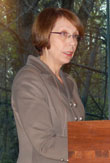 Washington, DC—On March 27, 2012, Ambassador Ritva Koukku-Ronde hosted WFPG at the Embassy of Finland, the first LEED-certified green embassy in the US, for a reception and program on "The European Union: Present Challenges." The conversation was moderated by Washington Post International Economics Correspondent Howard Schneider. Ambassador Koukku-Ronde highlighted the Euro crisis as the major challenge facing Europe in her remarks. She also addressed EU foreign policy, especially the importance of continued relations with the US in promoting democracy worldwide.
Washington, DC—On March 27, 2012, Ambassador Ritva Koukku-Ronde hosted WFPG at the Embassy of Finland, the first LEED-certified green embassy in the US, for a reception and program on "The European Union: Present Challenges." The conversation was moderated by Washington Post International Economics Correspondent Howard Schneider. Ambassador Koukku-Ronde highlighted the Euro crisis as the major challenge facing Europe in her remarks. She also addressed EU foreign policy, especially the importance of continued relations with the US in promoting democracy worldwide.
Ambassador Koukku-Ronde discussed the economic woes confronting Europe, particularly in Greece, Spain, and Italy. Despite obvious challenges, she remained confident that the proper measures have been taken, and that it is now up to other EU countries to ensure implementation takes place effectively. She noted that recent legislation, such as the "six pack" agreement and the Fiscal Compact Treaty, which both establish new fiscal rules intended to tighten economic coordination between EU countries, are proof of the EU’s capacity to act. The Ambassador stressed the importance of implementing austerity measures in order to rebuild confidence and restore growth.
The Ambassador also specifically addressed EU foreign policy, arguing that while economic matters have dominated European policy more strongly than ever before, the EU remains an important actor in the global arena. She expressed Finnish concerns surrounding what she sees as "a shift towards intergovernmentalism at the expense of the community method" in Europe. However, both in terms of the EU's powers to attract more members and its ability to intervene globally, the EU has proven largely "a success story." In terms of tackling global challenges, Koukku-Ronde argued that the EU has been at the forefront in providing development assistance worldwide. She noted that the EU is currently the world’s largest donor of development assistance and, along with the US, makes up 80% of global development aid. The Ambassador also mentioned the EU's capacity to intervene in crisis situations, for example in Chad and Somalia. The EU's greatest strength in that regard relates to its "unique position to assist post-revolution development not by marketing or forcing [its] own political systems, but by demonstrating the power of democracy and free expression."
In her closing remarks, Ambassador Koukku-Ronde expressed the importance of a continued partnership between the EU and the US in order to build a "more secure democratic and prosperous world." The two powers have already been cooperating on a wide array of issues, including conflict prevention and crisis response in the Middle East and North Africa, common efforts in Afghanistan and Pakistan, and human rights issues in the Asia-Pacific region, to name a few. She sees EU and US goals as fundamentally aligned and looks forward to continued collaboration.
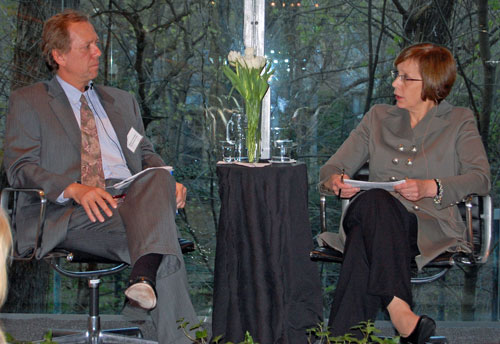 |
 |
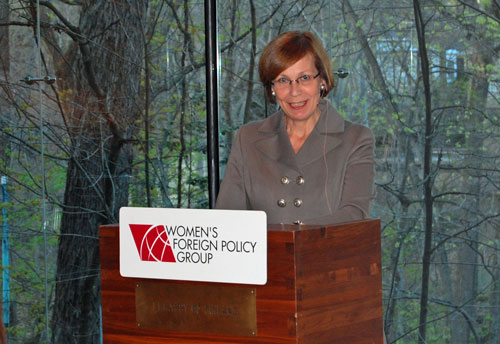 |
Moderator Howard Schneider and
Ambassador Ritva Koukku-Ronde
|
|
Ambassador Koukku-Ronde addresses
WFPG members and guests
|
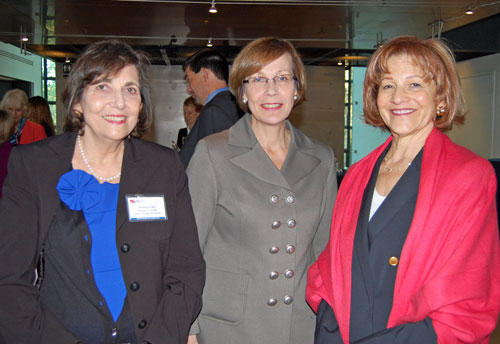 |
 |
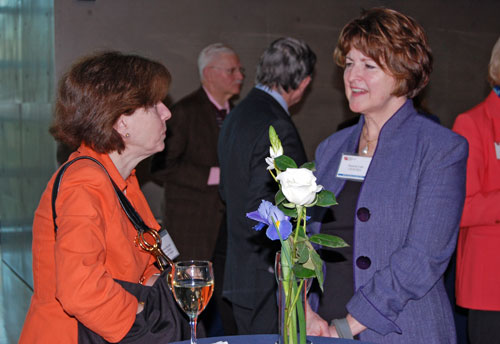 |
Ambassador Koukku-Ronde with WFPG President
Patricia Ellis and Board Chair Maxine Isaacs
|
|
WFPG guest with Board Member Theresa Loar
|
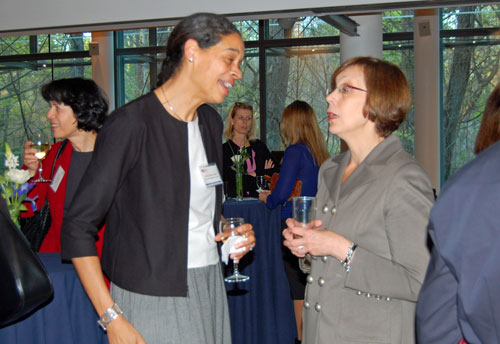 |
 |
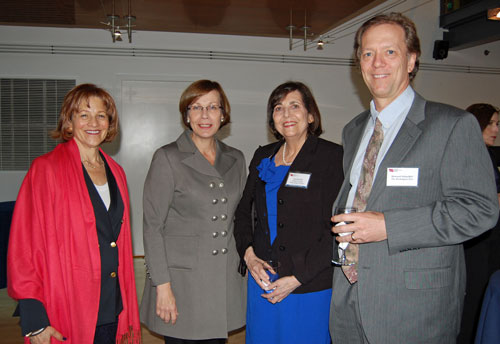 |
WFPG Board Member Gail Leftwich Kitch
with Ambassador Koukku-Ronde
|
|
Maxine Isaacs, Ambassador Koukku-Ronde,
Patricia Ellis, and Howard Schneider
|
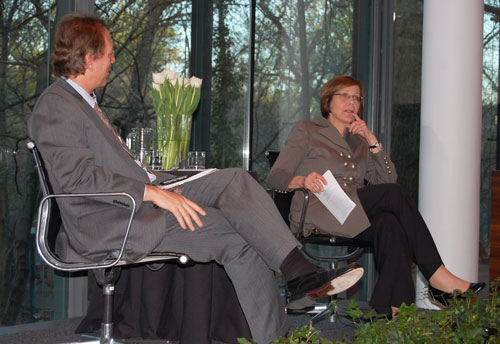 |
 |
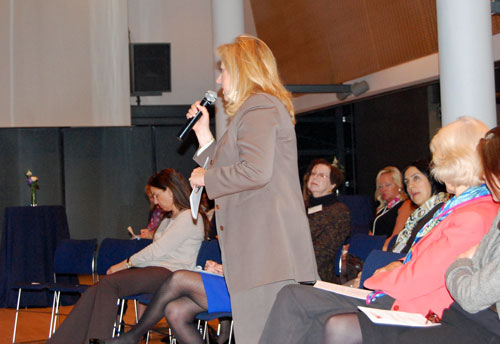 |
Ambassador Koukku-Ronde answers audience questions
|
|
Shelly Porges, State Department
|
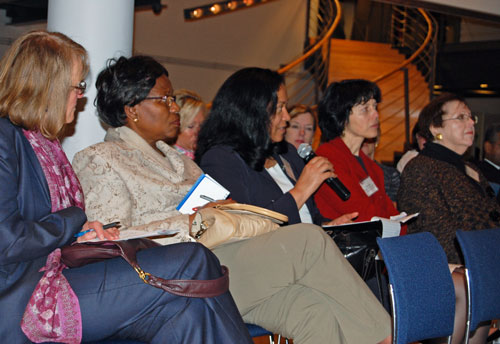 |
 |
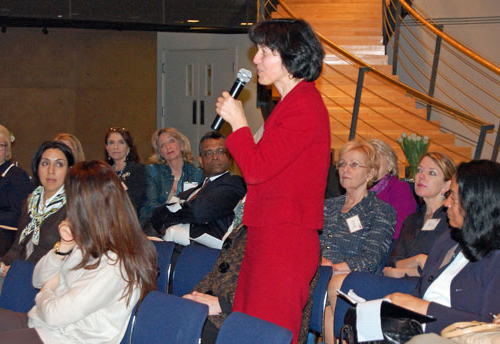 |
Ambassador Fatima Veiga of Cape Verde
|
|
Silvia Kofler, Delegation of the
European Union to the US
|
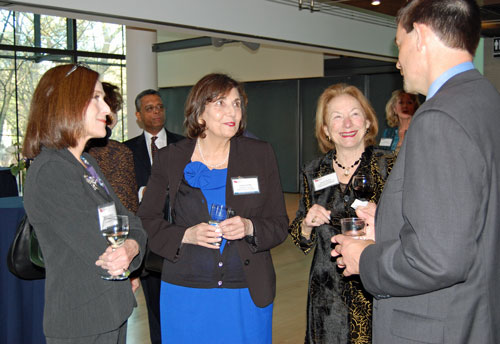 |
 |
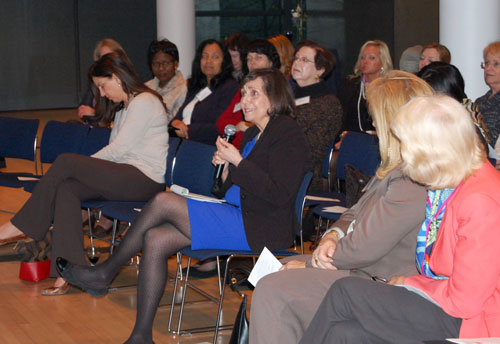 |